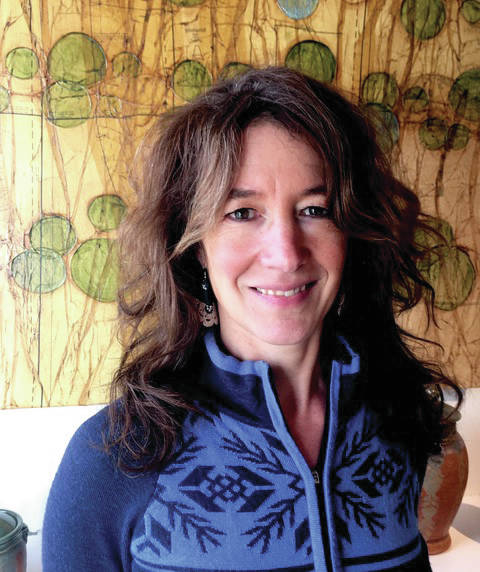Emily Johnson returns home to Alaska every year to spend time with her family during traditional times of subsistence harvest. During her stay, the Yup’ik artist makes time to share and collect stories that shape her work as a dancer, storyteller. At Bunnell Street Arts Center, she’s found a place where people have gathered for decades. Before this was an arts center, it was a general store at the end of the road to the west. Before that, the place called Bisihop’s Beach today was called Tuggeght, “beluga” in Dena’ina. We learned this from Emily Johnson in a recent project she created and presented here called SHORE: Tuggeght.
Johnson is part of a brave new generation of artists that is leading Alaska’s cultural sector to become adaptive and resilient, placing equity alongside excellence through inspired, decolonizing approaches that force us to evolve. Their artistic works reflect deeper truths about who we are and how we support each other — in ways both necessary and challenging, Alaskans are shaped and forged by our environment, our shared history and each other.
Incubator of Alaska’s artistic innovators, Bunnell’s mission is to nurture and present innovative art of exceptional quality for diverse audiences. This arts center has been a powerful force in shaping and connecting Alaska’s cultural landscape since 1991.
Revering this land and its stories has shaped and transformed me and my work as Artistic Director of Bunnell Street Arts Center. Here, we examine, engage, challenge and celebrate Alaska’s artistic resources, questions and opportunities. For Bunnell, and for myself, a process of self-definition and transformation is happening in tandem with the decolonizing methods of the artists we present.
The history we always knew is changing as we unearth stories and place names through efforts called land acknowledgement. When I was growing up in Homer, the story of this place emphasized settlers and colonists. Bunnell is located by a place called Bishop’s Beach by the homesteaders, fox farmers and fisherman who began settling this area about 100 years ago. It’s situated on the borderland of the Kenai River’s Dena’ina and the Sugpiaq (Russian colonizers called them Alutiiq), who are based across Kachemak Bay. Here, an abundance of sea life has sustained rich cultures and attracted many pioneers.
Johnson’s act of land acknowledgment taught us that right here — as in many other places — colonizers erased and suppressed history by taking Indigenous land and announcing new names. Through Johnson’s work, the power of land acknowledgement flows like hidden rivers beneath our feet, and reshapes our sense of place. When Emily Johnson lifted up the Dena’ina name for this place, Tuggeght, she subtly sparked Bunnell’s efforts to place equity and inclusion alongside excellence in every aspect of what we do. We changed our strategic plan to stress decolonization and indigenize our programs. This fall we present a dynamic slate of programs that reflect and elevate indigeneity in our exhibitions, performances and residencies.
Emily Johnson has returned to create a new work, “Being Future Being” (working title). This multi-disciplinary performance explores how the stories we tell ourselves set the potentials for who we will become. Envisioned as an evening-length performance for the stage, featuring Johnson and a cast of more-than-human creatures, this new work seeks to (re)build new visions of the force that brought this world into being.
Decolonization begins at home, with the stories we tell ourselves and our children. How do you tell your story? How did you come to be here? Let’s acknowledge the land and the people who have stewarded it for thousands of years.
Asia Freeman was born in Mexico and raised in Alaska. After graduating from Homer High School she attended Yale College (bachelor of arts, 1991) and Vermont School of Fine Arts (master of fine arts, 1997). Asia is a visual artist, an adjunct art instructor for the University of Alaska and a co-founder of Bunnell Street Arts Center, where she holds the position of Artistic Director.



